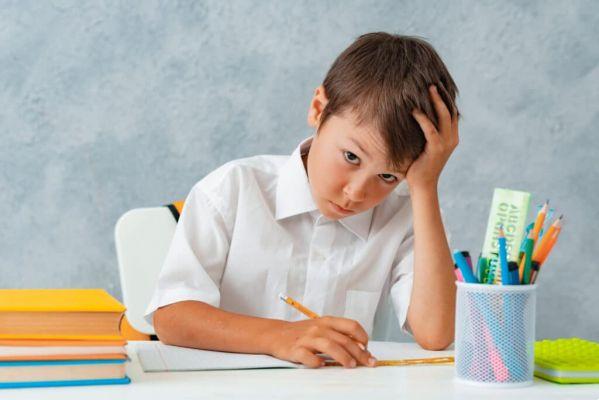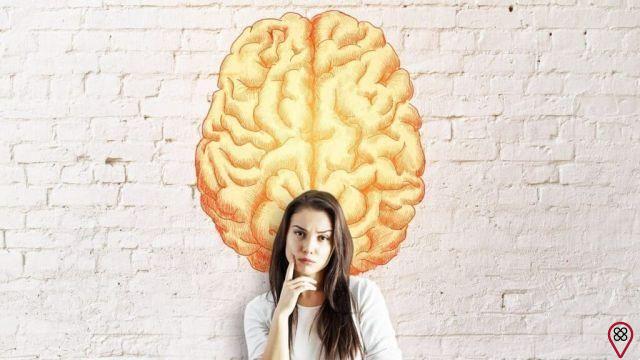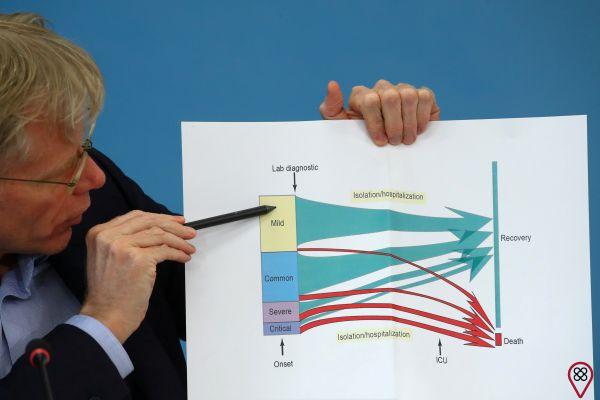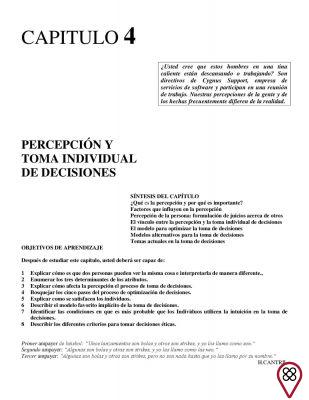Difficulty reading, interpreting texts and writing without making spelling mistakes are among the main symptoms of dyslexia, but this problem is more complex than that.
Check out our article on dyslexia symptoms, at what age they start to appear, how they affect people, and how they are diagnosed and treated!
What is dyslexia?
Dyslexia is a language disorder, that is, it affects the way we communicate - in the case of dyslexia, it is a disorder that affects reading and writing, because the difficulty is in decoding written stimuli and graphic symbols.
This problem compromises the patient's ability to read and write correctly and fluently, as well as making it difficult to understand a text. In more advanced stages of the problem, the person may even be unable to establish a relationship between written words and expressions and the sound of these spellings.
Dyslexia is a disorder genetic and hereditary, therefore, it is common for a family to have more than one person with dyslexia. In addition, although there is no definitive consensus, it is speculated that the excessive production of testosterone by the mother during pregnancy is related to the development of this problem.
types of dyslexia
Although there are some rarer and more particular types of dyslexia, it is usually divided into three main types. Are they:
- Vision dyslexia: the most common of all, is characterized by difficulty in writing, bad spelling, reading problems, poor visualization of words and difficulty differentiating the left side from the right side.
- Auditory dyslexia: in this type, in addition to the symptoms mentioned above, the child has difficulties in assimilating the sounds of words, since literacy is aided by writing/reading, so they also develop speech problems.
- Dyslexia mista: it is the union of the two dyslexias mentioned above, in addition to other symptoms that may vary from case to case, which may include difficulties in dealing with visual, graphic and auditory elements.
symptoms of dyslexia
As explained earlier, dyslexia is a problem that primarily affects reading, writing, and the ability to read and interpret visual and graphic elements, as well as concepts such as left and right.
But these symptoms can appear at different stages and show themselves in different ways, depending on the stage of life and development of the patient. Check out the various symptoms that affect every moment of life.

Symptoms of childhood dyslexia
Preschool (up to 7 years): Dyslexic children usually start to show the main symptoms from the moment they enter school and start the literacy process, but some symptoms can be noticed before.
Among them, the main ones are the lack of focus and attention in any activity and a constant dispersion, as if the child is never distracted by anything, which can confuse this problem with others, such as ADHD, which is a hyperactivity disorder.
Elementary 1 (up to 11 years): At this stage, there is a great difficulty in the literacy process, so it is common for the child to be delayed in the development of the ability to read and write, compared to other students of the same age.
In addition, the child demonstrates a marked inability to learn rhymes and songs, as well as to be able to follow melodies and sing.
Elementary 2 (up to 12 years): At this stage, two other difficulties begin to appear. The first one is a delay in motor coordination, so the child has problems in practicing sports and other physical activities, as well as not assimilating concepts such as left and right.
Finally, she also shows an absolute disinterest in books and any other written material that requires reading, so she prefers content with photos and videos, which do not demand her ability to read.
During this period, two other well-known symptoms of dyslexia become evident: dyscalculia, which is the difficulty in performing simple mathematical operations, and dysgraphia, which is the change of letters, as well as the omission, inversion or addition of letters and syllables. in written words.

Symptoms of Adolescent Dyslexia (ages 12 to 17)
At this stage, it becomes even clearer that pre-adolescents have much more difficulty than their peers in reading, writing and interpreting texts. And this can be proven by school grades, which are usually low because of the difficulty of interpreting school activities.
In addition, the teenager develops difficulty and sometimes inability to copy content from the board or dictated by the teacher, for example. Reading aloud and being able to understand at the same time as reading is also a great difficulty.
Finally, because they are quite inattentive and scattered, it is common for those who suffer from dyslexia to have great difficulty in organizing, so they always have messy, dirty and disorganized environments.

Symptoms of dyslexia in adults
In adulthood, if left untreated, dyslexia accentuates inattention and dispersion. In addition, it is evident that the person has great difficulty in reading and, at the same time, interpreting what is being read.
Additionally, there are self-esteem issues as well, because the person suffering from dyslexia is likely to have suffered from nasty jokes and pranks throughout their early life. In addition, the very inability to do something that everyone seems capable of doing also brings a sense of low self-esteem.
Diagnosis and treatment for dyslexia
The diagnosis of dyslexia can take some time, because it is usually made by exclusion, as the symptoms of this problem are confused with those of other diseases. Therefore, the diagnosis is usually made by exclusion and by a multidisciplinary team.
So it may be necessary to follow up with general practitioners, psychologists, psychopedagogues, neurologists and speech therapists, so that it is clear if the symptoms really are dyslexia, because they are often hearing and visual impairments, learning difficulties, attention deficit, poor school performance and other emotional and psychological problems.
The earlier the diagnosis is made, the more beneficial the treatment and the fewer social, emotional and self-esteem consequences the patient will suffer and, consequently, will be carried for the rest of their lives.
There is no cure for dyslexia. Treatment includes the participation of pedagogues, speech therapists and psychologists specializing in this disorder. They can help the person with dyslexia to overcome some of the symptoms or at least deal with them so that reading, writing and other activities and notions are less compromised.
Myths and truths about dyslexia
Difficulty with literacy is dyslexia — Myth
Many different problems can affect a child's school performance and literacy, not just dyslexia. Therefore, it is necessary to carry out professional follow-up as soon as this difficulty is identified.
Misspelling words is dyslexia — Myth
Not always. Often, learning was not good, it was not assimilated by the child and, after all, how many of us adults don't get words wrong when we need to write them? That's why this requires investigation, not hasty diagnosis.
People with dyslexia are less intelligent — Myth
How many very smart people do you know who still suck at numbers and math? So it is! People with dyslexia have difficulty reading, writing and assimilating some concepts, but their intelligence is like any other.
Dyslexia treatment is long — Truth
There are even people who undergo treatment with psychologists and psychopedagogues until the end of their lives, because, because there is no cure, new problems and challenges arise throughout life.
Some schools are better prepared to deal with students with dyslexia — Truth
Although the idea of promoting the interaction of children with dyslexia with others, who do not suffer from this problem, is good, the truth is that having teachers and an environment adapted to deal with the demands of students with dyslexia is the best way to educate. it properly.
You might also like:
- Find out what you can learn in times of crisis
- Discover the importance of connecting with your inner child
- Discover the benefits of yoga in childhood
Anyway, these are the main information about dyslexia. If you know someone who has these symptoms, it is best to seek medical help as soon as possible, especially if it is a child. Because treatment, when early, is very beneficial!

























